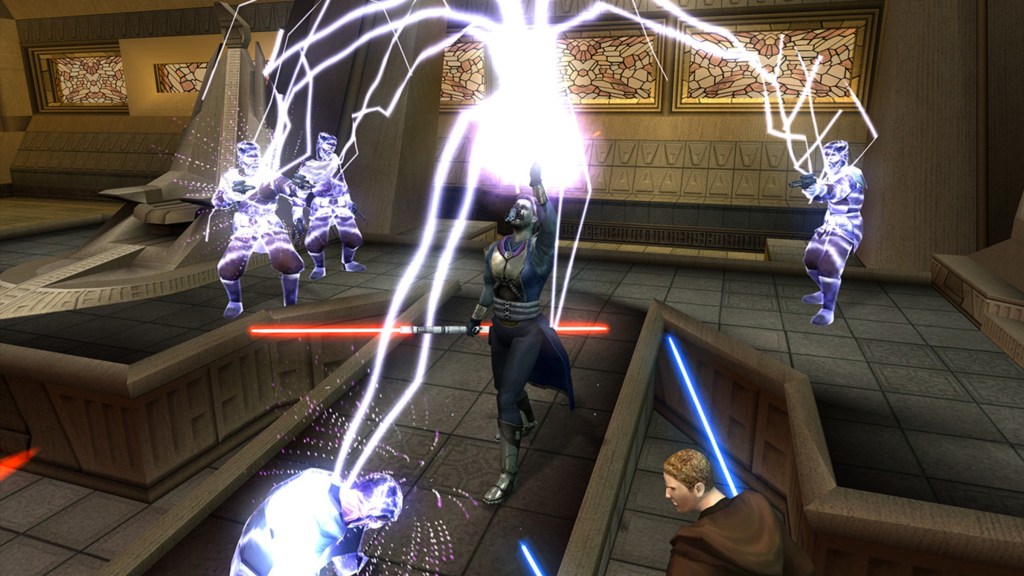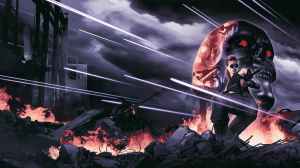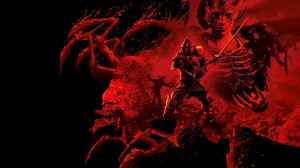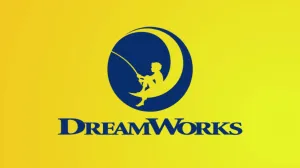The 2000s were a strange and exciting era for gaming, and even more so for the original Xbox. Microsoft was new to the console business and eager to make a splash, the same sort of splash that Sony had made with the original PlayStation nearly half a decade before it. This, naturally, led to an eclectic library of Xbox exclusives that often pushed boundaries. Some, like Halo, went on to literally become the defining aspect of the brand. Others slipped through the cracks, remembered fondly by a smaller circle of fans but rarely celebrated today.
Videos by ComicBook.com
Looking back at these hidden gems is like opening a time capsule of design risks, experiments, and creative storytelling. A few of these games still have passionate fanbases, and all of them deserve more recognition than they typically get. Here are three standout Xbox exclusives from the 2000s that are worth revisiting, including one that came from BioWare at the height of its golden era.
Jade Empire (2005)

When people think of BioWare, their minds usually jump to Mass Effect or Knights of the Old Republic. Yet in 2005, the legendary studio released an Xbox exclusive that has since become one of its most overlooked projects: Jade Empire. Set in a fantastical world inspired by Chinese mythology, it mixed martial arts action with the unique branching dialogue design trees and morality systems that BioWare was (and still is) known for.
The game stood out because it dared to blend action combat with RPG mechanics long before that became the industry norm. Players could choose from multiple fighting styles, mixing weapon-based combat and magical techniques in a fluid system that felt unique at the time. BioWare’s signature writing and character development gave the adventure additional depth, with choices that shaped both story outcomes and relationships with companions. To this day, it has one of the most powerful conclusions to a BioWare-created narrative.
Despite strong reviews and a loyal following, Jade Empire never received a sequel as the studio shifted focus to Mass Effect and Dragon Age development shortly after its release. Unfortunately, the game faded into the background of Xbox history, and although it is available on Steam now, time has not been kind to its design. Today, it remains a fascinating example of BioWare experimenting with new ideas, and it deserves recognition as one of the studio’s most daring and unique projects.
Crimson Skies: High Road to Revenge (2003)

An extremely well-received game right from the start, Crimson Skies: High Road to Revenge brought fast-paced aerial dogfighting to the console in 2003, and it quickly earned a cult following among those who played it. With its alternate 1930s setting filled with sky pirates and pulp adventure flair, it carved out a distinctive identity as a title with some serious creativity behind it.
The gameplay balanced arcade accessibility with strategic depth. Players piloted a range of aircraft through sprawling environments, from tropical islands to desert canyons, engaging in cinematic battles that emphasized fun over realism. The single-player campaign followed the roguish pilot Nathan Zachary, while the Xbox Live multiplayer gave fans a chance to test their skills in chaotic online dogfights.
Crimson Skies stood out because it offered something few other games did at the time: a mix of adventurous storytelling and engaging aerial combat. Despite its quality, it never grew into a major franchise, and Microsoft has since left it untouched in the depths of their archives. Fans still talk about it as an intellectual property that deserves a proper comeback, and it remains one of the Xbox’s most stylish and entertaining exclusives.
Knights of the Old Republic (2003)

Knights of the Old Republic, or KOTOR, is one of BioWare’s most iconic RPGs and a standout in the Xbox library. Set in the Star Wars universe thousands of years before the films, it let players experience an epic story with freedom to shape their character’s morality. The game’s choices impacted not only the protagonist’s alignment but also relationships with companions and the galaxy itself, making every decision feel meaningful. Even better, your actions within the title tied directly into the game’s strong narrative, and when the major plot twist of the title occurred, players got to see the results of their choices in real-time.
KOTOR’s gameplay was utterly groundbreaking for its era. Its blend of deep role-playing mechanics and cinematic storytelling created a level of immersion rarely seen on consoles, let alone Star Wars games. The branching narrative allowed for multiple endings and moral complexities, giving each playthrough a unique sense of wonder and consequence. Combined with an iconic soundtrack and outstanding voice acting, the game felt like stepping into a Star Wars movie, only you had the power to directly shape its every outcome.
Despite critical acclaim, KOTOR’s legacy is often overshadowed by later BioWare titles and Star Wars media. Many players who discovered the game on Xbox still regard it as one of the best Star Wars games ever made, but it rarely receives the mainstream attention it deserves. Even with its sequel, Knights of the Old Republic 2: The Sith Lords, the story feels incomplete. Fans have long hoped for a proper third entry to continue the saga, one that could capture the magic and narrative depth of the first game while expanding the galaxy further. Its spin-off MMORPG, The Old Republic, does technically continue the narrative that began with KOTOR, but it does not come close to capturing the same magic. KOTOR’s combination of storytelling and RPG depth set in the fabled Star Wars universe remains unmatched to this day, and it deserves renewed recognition as one of the Xbox’s defining exclusives of the 2000s.
What do you think? Leave a comment below and join the conversation now in the ComicBook Forum!









